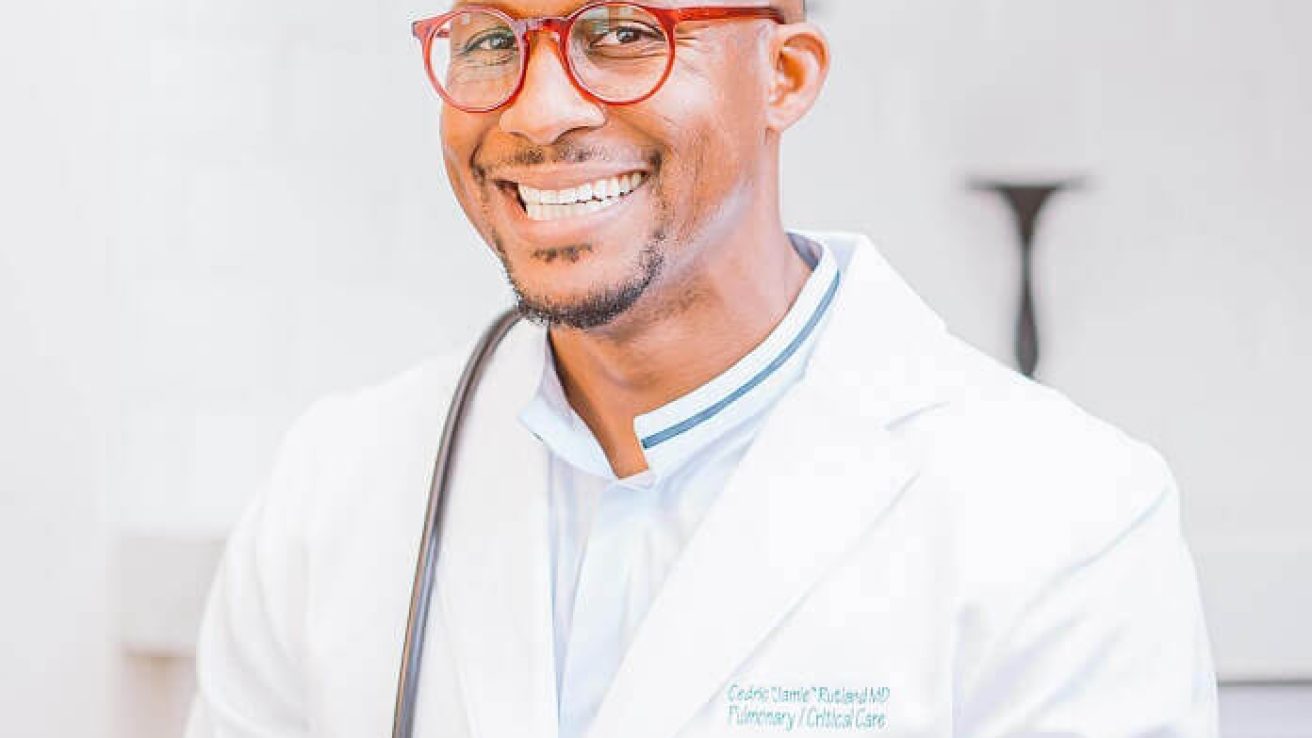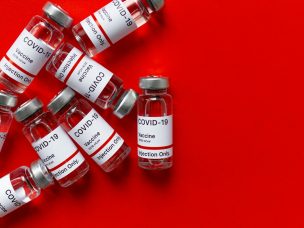MDNewsline recently sat down with Pulmonary/Critical Care Physician and American Lung Association spokesperson, Dr. Cedric “Jamie” Rutland. Dr. Rutland is based in Southern California and received his medical degree and completed residency in internal medicine from the University Of Iowa Carver College Of Medicine in Iowa City, IA. He continued to pursue his education at the University Of Kansas Medical Center specializing in pulmonary and critical care medicine. He is specially trained in endobronchial ultrasound “EBUS” in addition to navigational bronchoscopy and advanced bronchoscopy.
MDNewsline: How does COVID-19 affect the lungs? What makes it different from other illnesses in the lungs–what should physicians be looking for?
Dr. Cedric Rutland: Once SARS CoV2 attacks the type 2 pneumoncyte, after the spike protein binds to ACE2R, this leads to heavy recruitment of white blood cells to the alveoli. The alveoli are essentially balloons where gas exchange takes place and oxygen diffuses across your membrane to attach itself to your red blood cell and absorb into the bloodstream. Imagine your balloons being full of cells and fluid instead of air. This is what happens with severe COVID-19. This leads to hypoxia. Other illnesses may do the same thing but not to the degree that the presence of SARS CoV 2 does. This is why it can be so dangerous. We cannot predict who will do well and who will not do well.
MDNewsline: How does smoking affect the lungs? How do smokers’ symptoms vary with COVID?
Dr. Cedric Rutland: Earlier I had mentioned that your lungs are essentially pipes that lead to balloons stacked on top of one another. The balloons fill with air and allow gas exchange to take place. When you smoke, the balloons pop, so healthy lung tissue is damaged and gone forever. Smokers develop shortness of breath over time and have a long history of smoking. COVID is more acute and patients develop shortness of breath quickly.
MDNewsline: What current technologies and treatments exist for HCPs looking to help patients stop smoking?
Dr. Cedric Rutland: There are many types of nicotine replacement therapy. Again, nicotine is a drug that is extremely addicting. Replacing this drug via lozenge, gum or patch can lead a patient to quit smoking. Again, the best way to quit is cold turkey but nicotine replacement is effective as well.
MDNewsline: What are three things you think physicians should keep in mind when it comes to COVID and culture?
Dr. Cedric Rutland: When it comes to COVID and culture, I would remember COVID can cause a multitude of illnesses including pneumonia, blood clots (anywhere leading to stroke, heart attacks, pulmonary embolism), and post COVID syndrome which includes fatigue and significant shortness of breath. Washing your hands, wearing a mask and social distancing are of the utmost importance. If you are looking for vitamins that help enhance your immune system, vitamin C, vitamin D and zinc can be helpful and I, myself, take these medicines every day.
Dr. Rutland serves the Inland Empire, Newport Beach, and Foothill Ranch with his own practice Rutland Medical Group/ Westcoast Lung. His clinical expertise is focused on the evaluation of difficult cases in Interstitial Lung Disease and COPD.
As assistant clinical professor at the University of California Riverside, Dr. Rutland takes pride in training and mentoring students, nurses, and residents assigned to Riverside Community Hospital’s inpatient and outpatient settings.
In order to create a strong doctor-patient relationship, Dr. Rutland spear-headed “Medicine Deconstructed,” a YouTube channel designed to deliver a variety of medical topics in a manner more easily understood by those with a new medical diagnosis or not accustomed to medical terminology.
Dr. Rutland is a member of the American College of Chest Physicians and is a Diplomat of the American Board of Internal Medicine & Pulmonary Medicine.
Connect with Dr. Rutland on Instagram and Twitter @DrJRutland.










